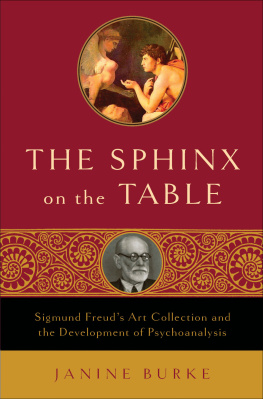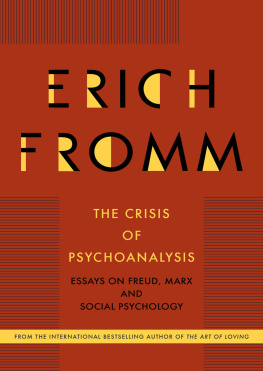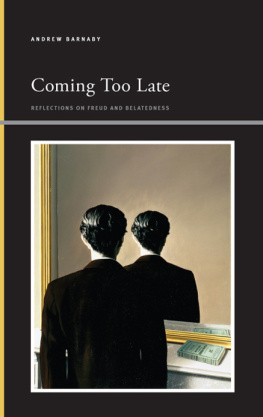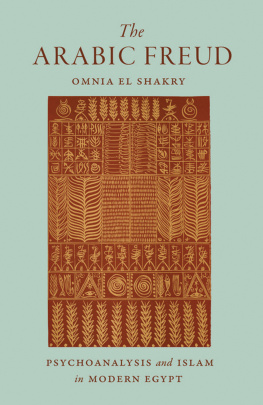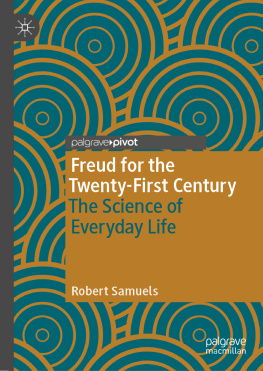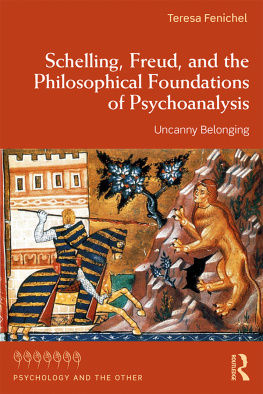Thank you for buying this ebook, published by NYU Press.
Sign up for our e-newsletters to receive information about forthcoming books, special discounts, and more!
Sign Up!
About NYU Press
A publisher of original scholarship since its founding in 1916, New York University Press Produces more than 100 new books each year, with a backlist of 3,000 titles in print. Working across the humanities and social sciences, NYU Press has award-winning lists in sociology, law, cultural and American studies, religion, American history, anthropology, politics, criminology, media and communication, literary studies, and psychology.
THE TRUTH ABOUT FREUDS TECHNIQUE
PSYCHOANALYTIC CROSSCURRENTS
General Editor: Leo Goldberger
THE DEATH OF DESIRE: A STUDY IN PSYCHOPATHOLOGY
by M. Guy Thompson
THE TALKING CURE: LITERARY REPRESENTATIONS OF PSYCHOANALYSIS
by Jeffrey Berman
NARCISSISM AND THE TEXT: STUDIES IN LITERATURE AND THE PSYCHOLOGY OF THE SELF
Edited by Lynne Layton and Barbara Ann Schapiro
THE LANGUAGE OF PSYCHOSIS
by Bent Rosenbaum and Harly Sonne
SEXUALITY AND MIND: THE ROLE OF THE FATHER AND THE MOTHER IN THE PSYCHE
by Janine Chasseguet-Smirgel
ART AND LIFE: ASPECTS OF MICHELANGELO
by Nathan Leites
PATHOLOGIES OF THE MODERN SELF: POSTMODERN STUDIES ON NARCISSISM, SCHIZOPHRENIA, AND DEPRESSION
Edited by David Michael Levin
FREUDS THEORY OF PSYCHOANALYSIS
by Ole Andkjaer Olsen and Simo Koppe
THE UNCONSCIOUS AND THE THEORY OF PSYCHONEUROSES
by Zvi Giora
CHANGING MIND-SETS: THE POTENTIAL UNCONSCIOUS
by Maria Carmen Gear, Ernesto Cesar Liendo, and Lila Lee Scott
LANGUAGE AND THE DISTORTION OF MEANING
by Patrick de Gramont
THE NEUROTIC FOUNDATIONS OF SOCIAL ORDER: PSYCHOANALYTIC ROOTS OF PATRIARCHY
by J. C. Smith
SELF AND OTHER: OBJECT RELATIONS IN PSYCHOANALYSIS AND LITERATURE
by Robert Rogers
THE IDEA OF THE PAST: HISTORY, SCIENCE, AND PRACTICE IN AMERICAN PSYCHOANALYSIS
by Leonard Jonathan Lamm
SUBJECT AND AGENCY IN PSYCHOANALYSIS: WHICH IS TO BE MASTER?
by Frances M. Moran
JACQUES LACANS RETURN TO FREUD: THE REAL, THE SYMBOLIC, AND THE IMAGINARY
by Phillippe Julien
THE TRUTH ABOUT FREUDS TECHNIQUE: THE ENCOUNTER WITH THE REAL
by M. Guy Thompson
THE TRUTH ABOUT FREUDS TECHNIQUE
The Encounter with the Real
M. Guy Thompson

NEW YORK UNIVERSITY PRESS
New York and London
Copyright 1994 by New York University
All rights reserved
Library of Congress Cataloging-in-Publication Data
Thompson, M. Guy, 1947
The truth about Freuds technique : the encounter with the real / M. Guy Thompson.
p. cm.(Psychoanalytic crosscurrents)
Includes bibliographical references and index.
ISBN 0-8147-8206-X (alk. paper)
1. Psychoanalysis and philosophy. 2. Freud, Sigmund, 18561939.
3. Heidegger, Martin, 18891976. I. Tide. II. Series.
[DNLM: 1. Freud, Sigmund, 18561939. 2. Heidegger, Martin,
18891976. 3. Psychoanalytic Theory. WM 460 T474f 1994]
BF175.4.P45T56 1994
150.1952092dc20 94-2933
CIP
New York University Press books are printed on acid-free paper
and their binding materials are chosen for strength and durability.
Manufactured in the United States of America
10 9 8 7 6 5 4 3 2 1
For Sharada
During my whole life I have endeavored to uncover truths. I had no other intention and everything else was completely a matter of indifference to me. My single motive was the love of truth.
Sigmund Freud
Whoever, like Freud, eschews philosophy, reveals a truly philosophic mind.
Lou Andreas-Salom
Contents
Foreword
The Psychoanalytic Crosscurrents series presents selected books and monographs that reveal the growing intellectual ferment within and across the boundaries of psychoanalysis.
Freuds theories and grand-scale speculative leaps have been found wanting, if not disturbing, from the very beginning and have led to a succession of derisive attacks, shifts in emphasis, revisions, modifications, and extensions. Despite the chronic and, at times, fierce debate that has characterized psychoanalysis, not only as a movement but also as a science, Freuds genius and transformational impact on the twentieth century have never been seriously questioned. Recent psychoanalytic thought has been subjected to dramatic reassessments under the sway of contemporary currents in the history of ideas, philosophy of science, epistemology, structuralism, critical theory, semantics, and semiology as well as in sociobiology, theology, and neurocognitive science. Not only is Freuds place in intellectual history being meticulously scrutinized; his texts, too, are being carefully read, explicated, and debated within a variety of conceptual frameworks and sociopolitical contexts.
The legacy of Freud is perhaps most notably evident within the narrow confines of psychoanalysis itself, the impossible profession that has served as the central platform for the promulgation of official orthodoxy. But Freuds contributionshis original radical thrustreach far beyond the parochial concerns of the clinician psychoanalyst as clinician. His writings touch on a wealth of issues, crossing traditional boundariesbe they situated in the biological, social, or humanistic spheresthat have profoundly altered our conception of the individual and society.
A rich and flowering literature, falling under the rubric of applied psychoanalysis, came into being, reached its zenith many decades ago, and then almost vanished. Early contributors to this literature, in addition to Freud himself, came from a wide range of backgrounds both within and outside the medical/psychiatric field, many later becoming psychoanalysts themselves. These early efforts were characteristically reductionistic in their attempt to extrapolate from psychoanalytic theory (often the purely clinical theory) to explanations of phenomena lying at some distance from the clinical. Over the years, academic psychologists, educators, anthropologists, sociologists, political scientists, philosophers, jurists, literary critics, art historians, artists, and writers, among others (with or without formal psychoanalytic training), have joined in the proliferation of this literature.
The intent of the Psychoanalytic Crosscurrents series is to apply psychoanalytic ideas to topics that may lie beyond the narrowly clinical, but its essential conception and scope are quite different. The present series eschews the reductionistic tendency to be found in much traditional applied psychoanalysis. It acknowledges not only the complexity of psychological phenomena but also the way in which they are embedded in social and scientific contexts that are constandy changing. It calls for a dialectical relationship to earlier theoretical views and conceptions rather than a mechanical repetition of Freuds dated thoughts. The series affirms the fact that contributions to and about psychoanalysis have come from many directions. It is designed as a forum for the multidisciplinary studies that intersect with psychoanalytic thought but without the requirement that psychoanalysis necessarily be the starting point or, indeed, the center focus. The criteria for inclusion in the series are that the work be significantly informed by psychoanalytic thought or that it be aimed at furthering our understanding of psychoanalysis in its broadest meaning as theory, practice, and sociocultural phenomenon; that it be of current topical interest and that it provide the critical reader with contemporary insights; and, above all, that it be high-quality scholarship, free of absolute dogma, banalization, and empty jargon. The authors professional identity and particular theoretical orientation matter only to the extent that such facts may serve to frame the work for the reader, alerting him or her to inevitable biases of the author.
Next page


